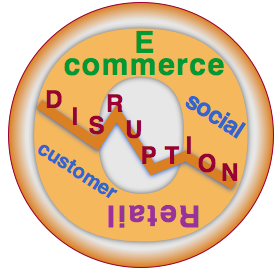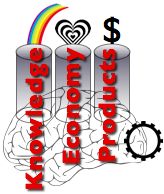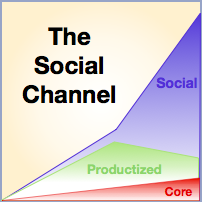
Africa [credit: Mapswire.com]
Africa is a nascent innovation powerhouse, and its leadership will become increasingly obvious during the coming decades, but the seeds are already visible as this post reveals: Africa’s population is exploding, and its young people are adopting tech alternatives to countries’ long-insufficient health, education, and financial infrastructure.
If you’ve been interested in international development for long, you have seen many prognostications about “Africa rising” over the years only to see them fade into oblivion. Predicting profound economic shifts is like predicting earthquakes; you study the driving forces and your algorithms crunch the data.
That isn’t stopping Helga Stegmann. She has led “user experience” agency Mantaray since 2006, and she gave a riveting talk last week in Chicago hosted by partner agency BoldInsight. In my experience, user experience folks rarely have their hands on the pulse of disruptive economic change, but the reason she is an exception reflects that Africa’s economic transformation is happening at the grassroots level (as with most revolutions), and her key orientation is user experience design, so researching users across rapidly evolving interfaces in devices. Follow along with my notes of her remarks […]
 Ethnographic research for cross border business shows how to apply ethnographic research of social media to reducing the risks and costs of doing cross border business and deals. Ethnographic research can transform the value proposition of international business because it’s a very efficient way to conduct due diligence, to study the behavior and motivations of the people that the deal proposes to serve. Unlike traditional research methods, which are relatively slow, costly and qualitative, ethnographic research of social media combines qualitative richness with quantitative analysis. It’s faster and less costly, too. Ethnographic research for cross border business shows how to apply ethnographic research of social media to reducing the risks and costs of doing cross border business and deals. Ethnographic research can transform the value proposition of international business because it’s a very efficient way to conduct due diligence, to study the behavior and motivations of the people that the deal proposes to serve. Unlike traditional research methods, which are relatively slow, costly and qualitative, ethnographic research of social media combines qualitative richness with quantitative analysis. It’s faster and less costly, too.
Ethnographic research for cross border business can dramatically improve the depth and breadth of research for business and corporate strategy, market entry strategy, customer development, human capital strategy, product management, and others since it allows teams to consider more users and to assess their behavior and motivations, which can improve the value of more costly research.
Imagine that you can get deep qualitative and quantitative data on what your proposed clients, customers, employees and partners are discussing among themselves, specifically about the business scenario you propose to address. Ethnographic allows you to validate, with real people, […]
Empowered customers and omni-channel commerce are mirrors of each other, and both are transforming “retail.”
 [UPDATED] Connected customers have the Internet in their pockets and use mobile and other devices in all stages of conceptualizing, considering, evaluating, buying and using purchased products and services. These customers want to interact with firms and brands in a seamless experience that features single sign-on as an entry point; they want the firm to respond using their individual data when that makes interacting more valuable. Omni-channel commerce refers to a collection of technologies, practices and strategies firms use to provide the personal individualized experience that connected customers expect. [UPDATED] Connected customers have the Internet in their pockets and use mobile and other devices in all stages of conceptualizing, considering, evaluating, buying and using purchased products and services. These customers want to interact with firms and brands in a seamless experience that features single sign-on as an entry point; they want the firm to respond using their individual data when that makes interacting more valuable. Omni-channel commerce refers to a collection of technologies, practices and strategies firms use to provide the personal individualized experience that connected customers expect.
IBM’s 2012 study of retail customers in eight mature economies (Australia, Canada, France, Italy, Japan, Spain, the UK and the USA) and seven growth economies (Argentina, Brazil, Chile, China, Colombia, Mexico and South Africa) lays bare that the retail “shopping” experience has shifted profoundly, although you wouldn’t know it by looking at most offline or online retailers’ presences. The paper, “Winning over the empowered consumer: Why trust matters,” is a call to […]
 [UPDATED] Social business strategy use cases represent scenarios in which most organizations find themselves, and they reflect some of the choices of which CDOs, CMOs and CEOs may use as they plan to evolve their enterprises in order to either improve returns or simply remain relevant in volatile markets. [UPDATED] Social business strategy use cases represent scenarios in which most organizations find themselves, and they reflect some of the choices of which CDOs, CMOs and CEOs may use as they plan to evolve their enterprises in order to either improve returns or simply remain relevant in volatile markets.
Social business strategy is inherently transformational to large organizations whether they are in commercial, nonprofit or government sectors. All organizations are hives of people communicating and collaborating to execute business processes (“work”). Digital social technologies have reduced the cost of communication (and therefore much collaboration and work) by an order of magnitude (roughly ten times). Collaboration and innovation, before digital social technologies, were slow and expensive. Now they are very fast and inexpensive—when organizations learn how to use them. Organizations that learn how are more responsive to their constituents and customers, so the market rewards them—and will increasingly punish those that lag too far.
These use cases focus on building enterprise social business internal capability, and they are also helpful to consider when selecting social business advisors. Please […]
![Transform the Enterprise [Social Business Team Building] case5](http://rollyson.net/wp-content/uploads/2013/04/sbtb5.png) Transform the Enterprise is almost always initiated by the CEO’s office, the CDO, the board of directors or other strategic body. Its defining characteristic is enterprise transformation, using social business as a key enabler. Some of its common business contexts are: the hiring of a (new) CDO (Chief Digital Officer), which is itself a commitment to use social business for transformation; a merger, major acquisition or sale whose focus is to redefine the enterprise; “pervasive social business” that results when several of the enterprise’s brands have had some social business success that the executive team wants to scale; scaling enterprise 2.0 social collaboration technologies; self-disruption to create a new level of competitiveness. Transform the Enterprise is almost always initiated by the CEO’s office, the CDO, the board of directors or other strategic body. Its defining characteristic is enterprise transformation, using social business as a key enabler. Some of its common business contexts are: the hiring of a (new) CDO (Chief Digital Officer), which is itself a commitment to use social business for transformation; a merger, major acquisition or sale whose focus is to redefine the enterprise; “pervasive social business” that results when several of the enterprise’s brands have had some social business success that the executive team wants to scale; scaling enterprise 2.0 social collaboration technologies; self-disruption to create a new level of competitiveness.
In 2013, digital marketing and firm executives are thinking about building their internal teams to provide more continuity and scale. Transform the Enterprise also focuses on the right side of the Social Business Life Cycle, specifically on Scale and Integrate. At this point, the enterprise usually has a panoply of social business or social media resources that it wants to knit together into a […]
 I covered the Federal Reserve Bank of Chicago Economic Forecast last week, where all speakers issued this refrain: “More of the same.” Key economic indicators have been stuck in neutral—the proverbial “sideways” movement—so the consensus in the room was one of faint frustration tempered by gratitude. Everyone had lived through worse. I covered the Federal Reserve Bank of Chicago Economic Forecast last week, where all speakers issued this refrain: “More of the same.” Key economic indicators have been stuck in neutral—the proverbial “sideways” movement—so the consensus in the room was one of faint frustration tempered by gratitude. Everyone had lived through worse.
The current “recovery” is underperforming any other in recent memory according to many measures, especially employment.
The conference was very well organized and featured expert presenters. Reading between the lines, I perceive significant opportunity that will surprise most people. After my notes of speakers’ remarks, I’ll share my thoughts on 2013’s opportunity that is evident when one regards “the economy” from a different point of view.
Everyone wonders what kind of presents we will open in 2013 (right).
[…]
 [UPDATED] Several profound market forces are preparing the ascendancy of Knowledge Economy products, which result from collaboration among designers, artists, engineers, customers and firms. This represents one of the Knowledge Economy’s most exciting-yet-disruptive elements: “products” will cease to be dominated by monolithic factories that mass produce virtually all items that people use and consume. Moreover, people have an inherent joy when they can make things for themselves, their friends and their families—and a dramatic new wave of creativity and innovation is imminent. To help you wrap your mind around Knowledge Economy products, this post will recall what happened to mass media and entertainment industries. [UPDATED] Several profound market forces are preparing the ascendancy of Knowledge Economy products, which result from collaboration among designers, artists, engineers, customers and firms. This represents one of the Knowledge Economy’s most exciting-yet-disruptive elements: “products” will cease to be dominated by monolithic factories that mass produce virtually all items that people use and consume. Moreover, people have an inherent joy when they can make things for themselves, their friends and their families—and a dramatic new wave of creativity and innovation is imminent. To help you wrap your mind around Knowledge Economy products, this post will recall what happened to mass media and entertainment industries.
Knowledge Economy products are conceived, designed, prototyped and fabricated in the Social Channel. Best practices in open source, Agile development, design and Web development will unleash continuous innovation at a scale and pace we’ve never seen before. Knowledge and innovation will be free in the Knowledge Economy because all supporting processes will become an order of magnitude faster and cheaper. Firms and brands that do not recognize and respond quickly enough will become irrelevant.
Most brands […]
 The Social Channel of Value explains our era’s drivers of economic transformation and how leaders can use them to strengthen their careers, organizations and communities. Profound shifts in human beings’ means of production restructure society and business because they alter the amount of “value” human work can create as well as the type of “products” that encapsulate people’s work. Individuals and organizations that notice, observe and understand these shifts early on can improve their relevance and competitiveness. Many of those that do not respond quickly enough go down with the ship. The Social Channel of Value explains our era’s drivers of economic transformation and how leaders can use them to strengthen their careers, organizations and communities. Profound shifts in human beings’ means of production restructure society and business because they alter the amount of “value” human work can create as well as the type of “products” that encapsulate people’s work. Individuals and organizations that notice, observe and understand these shifts early on can improve their relevance and competitiveness. Many of those that do not respond quickly enough go down with the ship.
Since the Social Channel is so important, I have published the Social Channel Trilogy, which is summarized here. Find even more information on the Social Channel home page.
[…]
Social Channel Three: Using the Social Channel to Defend Native Markets and Penetrate Foreign Markets
 The global Social Channel will reintroduce “home court advantage” to national brands because those that use social business to compete globally by collaborating with users will have the cultural advantage; “foreign” firms may have better product features for the money, but they will not match home brands’ cultural fluency. Personalized service and attention are culturally specific, and deep cultural fluency directly correlates to intimacy. However, brands can only develop the home court advantage by practicing social business at an advanced level. Most have a long way to go and, meanwhile, they will get hammered when they persist in competing on product features in the Productized Channel of Value. The global Social Channel will reintroduce “home court advantage” to national brands because those that use social business to compete globally by collaborating with users will have the cultural advantage; “foreign” firms may have better product features for the money, but they will not match home brands’ cultural fluency. Personalized service and attention are culturally specific, and deep cultural fluency directly correlates to intimacy. However, brands can only develop the home court advantage by practicing social business at an advanced level. Most have a long way to go and, meanwhile, they will get hammered when they persist in competing on product features in the Productized Channel of Value.
The blade cuts both ways: the home court advantage will make exporting to emerging markets much more difficult in the years ahead. The Social Channel will raise the bar because users in all markets will increasingly expect brands to relate to them and to solicit their input and advice. Brands will have to invest significantly in developing in-market social […]
Regina Herzlinger Keynotes Chicago Healthcare Executives Forum 35th Anniversary
Five-Point Prescription for U.S. Health Care—Involving Patients
 CHEF Chicago’s hospital executives listened raptly to Dr. Regina Herzlinger‘s impassioned message for transforming U.S. health care at their 35th anniversary celebration this month at the J.W. Marriott in Chicago. Dr. Herzlinger is respected and renowned for her message, so there were few surprises. The most distinctive element of her point of view is her strategy for taking a retail-led approach to transforming health care. She is very market- and consumer-focused, which is refreshing because it relies on the market and customers at least as much as the government. “Who Killed Health Care?” is her latest book, and she is a regular advisor to federal and state government officials. CHEF Chicago’s hospital executives listened raptly to Dr. Regina Herzlinger‘s impassioned message for transforming U.S. health care at their 35th anniversary celebration this month at the J.W. Marriott in Chicago. Dr. Herzlinger is respected and renowned for her message, so there were few surprises. The most distinctive element of her point of view is her strategy for taking a retail-led approach to transforming health care. She is very market- and consumer-focused, which is refreshing because it relies on the market and customers at least as much as the government. “Who Killed Health Care?” is her latest book, and she is a regular advisor to federal and state government officials.
[…]
|
|


 Ethnographic research for cross border business shows how to apply ethnographic research of social media to reducing the risks and costs of doing cross border business and deals. Ethnographic research can transform the value proposition of international business because it’s a very efficient way to conduct due diligence, to study the behavior and motivations of the people that the deal proposes to serve. Unlike traditional research methods, which are relatively slow, costly and qualitative, ethnographic research of social media combines qualitative richness with quantitative analysis. It’s faster and less costly, too.
Ethnographic research for cross border business shows how to apply ethnographic research of social media to reducing the risks and costs of doing cross border business and deals. Ethnographic research can transform the value proposition of international business because it’s a very efficient way to conduct due diligence, to study the behavior and motivations of the people that the deal proposes to serve. Unlike traditional research methods, which are relatively slow, costly and qualitative, ethnographic research of social media combines qualitative richness with quantitative analysis. It’s faster and less costly, too. [UPDATED] Connected customers have the Internet in their pockets and use mobile and other devices in all stages of conceptualizing, considering, evaluating, buying and using purchased products and services. These customers want to interact with firms and brands in a seamless experience that features single sign-on as an entry point; they want the firm to respond using their individual data when that makes interacting more valuable. Omni-channel commerce refers to a collection of technologies, practices and strategies firms use to provide the personal individualized experience that connected customers expect.
[UPDATED] Connected customers have the Internet in their pockets and use mobile and other devices in all stages of conceptualizing, considering, evaluating, buying and using purchased products and services. These customers want to interact with firms and brands in a seamless experience that features single sign-on as an entry point; they want the firm to respond using their individual data when that makes interacting more valuable. Omni-channel commerce refers to a collection of technologies, practices and strategies firms use to provide the personal individualized experience that connected customers expect. [UPDATED] Social business strategy use cases represent scenarios in which most organizations find themselves, and they reflect some of the choices of which CDOs, CMOs and CEOs may use as they plan to evolve their enterprises in order to either improve returns or simply remain relevant in volatile markets.
[UPDATED] Social business strategy use cases represent scenarios in which most organizations find themselves, and they reflect some of the choices of which CDOs, CMOs and CEOs may use as they plan to evolve their enterprises in order to either improve returns or simply remain relevant in volatile markets.![Transform the Enterprise [Social Business Team Building] case5](http://rollyson.net/wp-content/uploads/2013/04/sbtb5.png) Transform the Enterprise is almost always initiated by the CEO’s office, the CDO, the board of directors or other strategic body. Its defining characteristic is enterprise transformation, using social business as a key enabler. Some of its common business contexts are: the hiring of a (new) CDO (Chief Digital Officer), which is itself a commitment to use social business for transformation; a merger, major acquisition or sale whose focus is to redefine the enterprise; “pervasive social business” that results when several of the enterprise’s brands have had some social business success that the executive team wants to scale; scaling enterprise 2.0 social collaboration technologies; self-disruption to create a new level of competitiveness.
Transform the Enterprise is almost always initiated by the CEO’s office, the CDO, the board of directors or other strategic body. Its defining characteristic is enterprise transformation, using social business as a key enabler. Some of its common business contexts are: the hiring of a (new) CDO (Chief Digital Officer), which is itself a commitment to use social business for transformation; a merger, major acquisition or sale whose focus is to redefine the enterprise; “pervasive social business” that results when several of the enterprise’s brands have had some social business success that the executive team wants to scale; scaling enterprise 2.0 social collaboration technologies; self-disruption to create a new level of competitiveness. I covered the Federal Reserve Bank of Chicago Economic Forecast last week, where all speakers issued this refrain: “More of the same.” Key economic indicators have been stuck in neutral—the proverbial “sideways” movement—so the consensus in the room was one of faint frustration tempered by gratitude. Everyone had lived through worse.
I covered the Federal Reserve Bank of Chicago Economic Forecast last week, where all speakers issued this refrain: “More of the same.” Key economic indicators have been stuck in neutral—the proverbial “sideways” movement—so the consensus in the room was one of faint frustration tempered by gratitude. Everyone had lived through worse. [UPDATED] Several profound market forces are preparing the ascendancy of Knowledge Economy products, which result from collaboration among designers, artists, engineers, customers and firms. This represents one of the Knowledge Economy’s most exciting-yet-disruptive elements: “products” will cease to be dominated by monolithic factories that mass produce virtually all items that people use and consume. Moreover, people have an inherent joy when they can make things for themselves, their friends and their families—and a dramatic new wave of creativity and innovation is imminent. To help you wrap your mind around Knowledge Economy products, this post will recall what happened to mass media and entertainment industries.
[UPDATED] Several profound market forces are preparing the ascendancy of Knowledge Economy products, which result from collaboration among designers, artists, engineers, customers and firms. This represents one of the Knowledge Economy’s most exciting-yet-disruptive elements: “products” will cease to be dominated by monolithic factories that mass produce virtually all items that people use and consume. Moreover, people have an inherent joy when they can make things for themselves, their friends and their families—and a dramatic new wave of creativity and innovation is imminent. To help you wrap your mind around Knowledge Economy products, this post will recall what happened to mass media and entertainment industries. The Social Channel of Value explains our era’s drivers of economic transformation and how leaders can use them to strengthen their careers, organizations and communities. Profound shifts in human beings’ means of production restructure society and business because they alter the amount of “value” human work can create as well as the type of “products” that encapsulate people’s work. Individuals and organizations that notice, observe and understand these shifts early on can improve their relevance and competitiveness. Many of those that do not respond quickly enough go down with the ship.
The Social Channel of Value explains our era’s drivers of economic transformation and how leaders can use them to strengthen their careers, organizations and communities. Profound shifts in human beings’ means of production restructure society and business because they alter the amount of “value” human work can create as well as the type of “products” that encapsulate people’s work. Individuals and organizations that notice, observe and understand these shifts early on can improve their relevance and competitiveness. Many of those that do not respond quickly enough go down with the ship. CHEF Chicago’s hospital executives listened raptly to Dr. Regina Herzlinger‘s impassioned message for transforming U.S. health care at their 35th anniversary celebration this month at the J.W. Marriott in Chicago. Dr. Herzlinger is respected and renowned for her message, so there were few surprises. The most distinctive element of her point of view is her strategy for taking a retail-led approach to transforming health care. She is very market- and consumer-focused, which is refreshing because it relies on the market and customers at least as much as the government. “Who Killed Health Care?” is her latest book, and she is a regular advisor to federal and state government officials.
CHEF Chicago’s hospital executives listened raptly to Dr. Regina Herzlinger‘s impassioned message for transforming U.S. health care at their 35th anniversary celebration this month at the J.W. Marriott in Chicago. Dr. Herzlinger is respected and renowned for her message, so there were few surprises. The most distinctive element of her point of view is her strategy for taking a retail-led approach to transforming health care. She is very market- and consumer-focused, which is refreshing because it relies on the market and customers at least as much as the government. “Who Killed Health Care?” is her latest book, and she is a regular advisor to federal and state government officials.